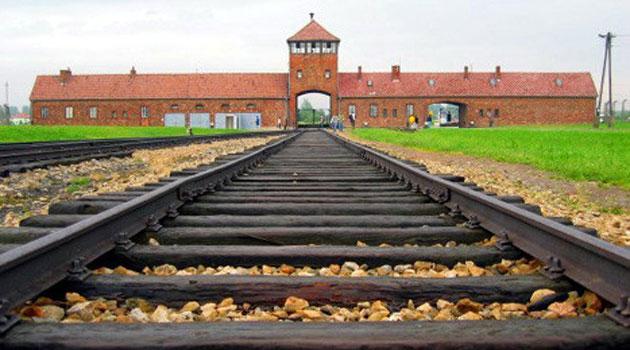Germany: SS volunteer charged with participating in 300 000 murders at Auschwitz

On Tuesday, 21 April 2015, the trial of 93-year-old Oskar Gröning, who worked in the Nazi concentration camp of Auschwitz, began under intense media scrutiny. Gröning, who is charged with participating in the deaths of 300 000 Jewish people, recognized in his opening statement that he bears moral responsibility for his actions and said he believes the court must decide whether he is criminally culpable.
Should he be found guilty, he faces at least three years in prison. The proceeding, which is considered one of the final grand trials of agents from the Nazi era, is scheduled to last until 29 July.
The opening hearing in the northern German town of Lüneburg began in the morning with approximately a 30-minute delay. Gröning entered the courtroom using a walker and was helped by his lawyers.
"I do not doubt that I bear moral co-responsibility," he told the court, adding that in 1942, immediately upon arriving in Auschwitz, he had learned that Jews were being gassed to death there. "I ask for forgiveness. You must decide the question of criminal guilt," said the fragile-looking man.
The Deutsche Presse-Agentur reported that during his testimony, Gröning sometimes spoke in the way that had been customary during the Hitler era. He said he believed the aim of the invasion of Poland in September 1939 had been to "thrash the Poles".
Gröning, who was a volunteer with the SS units, worked at Auschwitz until 1944. The indictment, however, concentrates on the period between May and July of 1944, the so-called "Hungarian action" during which the Nazis transported more than 420 000 Hungarian Jews to the death camp.
Gröning is considered responsible for the deaths of 300,000 of those people. According to the state prosecutor, he did not participate directly in the violence, but searched the luggage confiscated from the arriving prisoners and took their money.
He then sent the confiscated assets to Berlin. According to the indictment, his work supported this systematic murder, and he faces charges of abetting a criminal act.
Gröning also contributed to Nazi Germany benefiting economically from mass murder, said State Prosecutor Jens Lehmann. More than 60 people are claimants in the case, Holocaust survivors and relatives of the victims from Canada, Hungary and the USA.
"It didn’t end with Hitler’s fall," said Eva Mozes Kor of the psychological pain she feels in relation Auschwitz. She was there to follow the trial in Lüneburg.
Josef Mengele performed medical experiments on her and on her twin sister. "One can’t just push a button and begin a new life," Reuters quoted the 81-year-old woman.
The court must decide whether the defendant’s state of health will make it possible for him to serve any eventual sentence, if convicted. In previous interviews, Gröning told journalists that he has decided to speak publicly about his past after encountering Holocaust denial recently.
"I saw the gas chambers. I saw the crematorium ovens," he says in the 2005 BBC documentary, "Auschwitz: The Nazis and the ‘Final Solution’".
Gröning has repeatedly insisted that he personally never committed any crime. Reuters reports that his case concerns essential questions as to whether criminal responsibility should also be borne by people who did not actively, directly participate in the murder of the Jews but who were just tiny cogs in the gigantic gears of the Nazi machinery.
In the past, in the case of Gröning and others working in the Auschwitz death camp, detectives concluded that their actions at that time were not related to the murders going on around them. That changed with the case of John Demjanjuk, who was convicted in 2011 as an accessory to the mass murder of Jewish people, even though there was no evidence he had ever personally committed murder while working as a guard at the Sobibor concentration camp; he died before his appeal could be heard, so he remains innocent under German law, his earlier conviction is invalidated, and he does not have a criminal record.